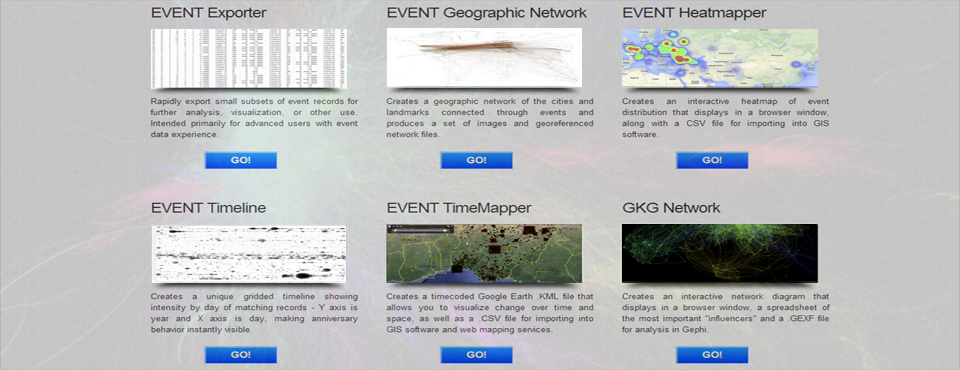Today we are extraordinarily excited to announce a spectacular new addition to the GDELT family: the GDELT Analysis Service! This new cloud-based service allows you to visualize, analyze, explore, and export both the GDELT Event Database and GDELT Global Knowledge Graph completely from your web browser, with no technical experience or expertise whatsoever required. You just click a few buttons to specify your query and a few minutes later the results are delivered to your email inbox!
Historically, working with GDELT’s massive size and scale has required highly specialized skillsets in data management, parsing and scripting languages, and optimized workflows and data movement toolsets. Simply querying a quarter-billion event records is itself a non-trivial production, and creating spatio-temporal visualizations from the data, or even network constructions, has been one of the greatest complications in working with GDELT.
A common thread we’ve heard from all of you is the need for a central set of tools that make it easier to work with GDELT and that can translate its rich multidimensional knowledgebase into file formats and visualizations that analysts and scholars can better make sense of. For example, there has been phenomenal interest in the GDELT Global Knowledge Graph, due to its ability to peer into the context of events and, most critically, the latent environmental shifts that precede physical unrest. Yet, working with the GKG requires advanced scripting capability and experience creating rapid high-velocity data workflows. Most spatial, temporal, and network analysis packages don’t provide this kind of support for advanced file formats, so a number of the tools in the GDELT Analysis Service have been designed to translate GDELT’s data into file formats specifically designed for sophisticated non-traditional analysis.
We’re incredibly excited to announce the GDELT Analysis Service to the world and can’t wait to see what you do with it!
Try the GDELT Analysis Service Yourself!
